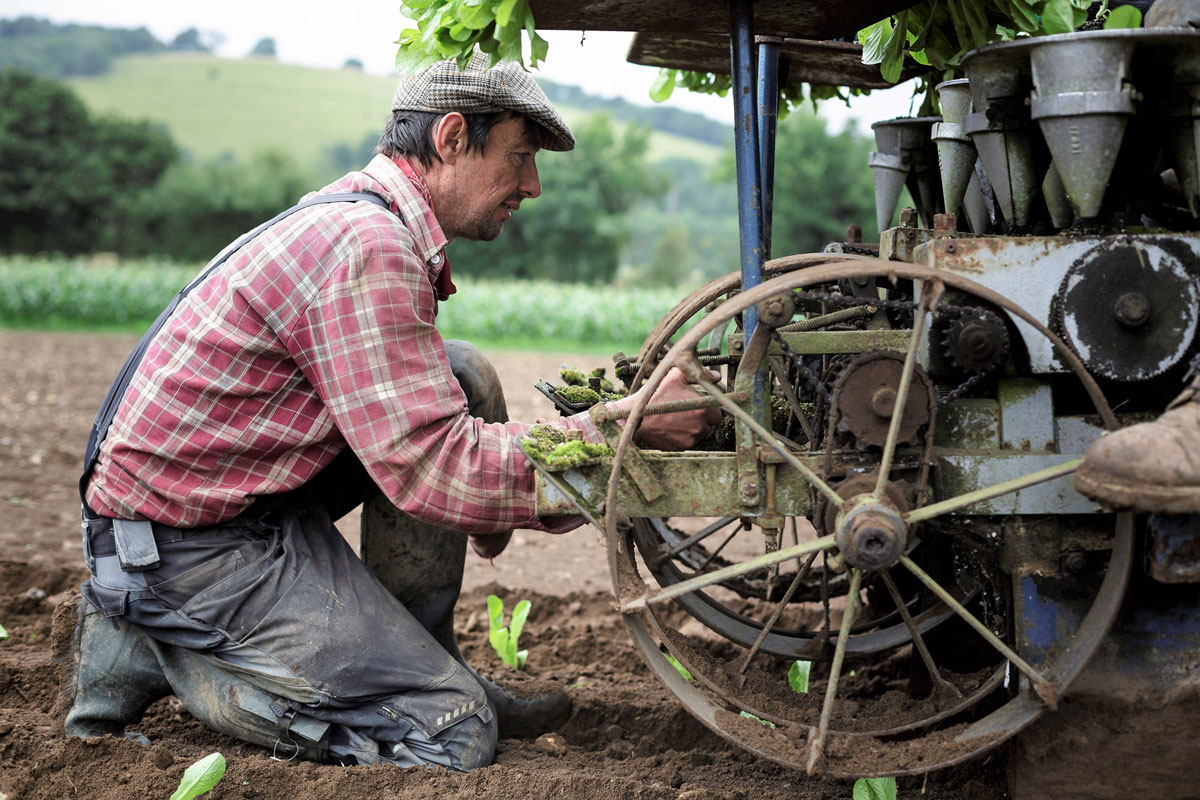Sustain • London Food Link • Articles
Can local food topple supermarket giants?
With a growing number of people shifting away from supermarkets and towards local and farmer-focused options, Sustain’s Amy Luck and James Woodward explore what this means for farmers, suppliers and shoppers alike.

Our food system has lost its way. Big retail is failing to support farmers, our health, our connection to food, and is certainly falling short of protecting our planet. To get back on track we need to be asking the all-important question: where does our food actually come from?
A SUPERMARKET SWEEP
Supermarkets control more than 90% of the food we buy through retail and their model has created low worker pay, low farm incomes, environmentally damaging food production, deforestation and high food waste. In the UK, farmers receive on average just 9% of each £1 spent by the shopper, and many big supermarkets have come under fire for paying workers below minimum wage. At the start of the pandemic, this conventional just-in-time model strained, with accounts of empty fresh food shelves as supermarkets struggled with supplies. We saw a shift in the way people shopped, with many switching to local and sustainable food options. Food Foundation research found UK veg box schemes had an 111% increase in demand at the start of lockdown, and the Community Supported Agriculture Network saw community farm members double.
SHIFTING SUPPLY
For many city dwellers, buying direct from farmers is not easy. So what’s the alternative if we want to shop to give farmers and our planet a better deal? This is the question the Better Food Traders Network set out to address. It supports independent retailers, box schemes, farm shops and all the other middle-people bringing food to customers via ethical and transparent supply chains, paying a fair price for farmers who in turn support nature and grow organically. One of the most well-established is Growing Communities, the Hackney-based box scheme and farmers’ market, which works with farmers and organic growers on the fringes of London.
Danny Fisher heads up the Better Food Shed, a new type of intermediary springing out of London’s thriving box scheme scene. He buys produce direct from organic farms and supplies box schemes and shops from their Barking-based warehouse, streamlining deliveries while creating new opportunities for farmers and retailers to connect.
The Shed takes care of organising, selling and distributing produce, helping farmers focus on what they are best at. Danny says, “The key difference between us and a conventional wholesaler is that we are ‘farmer-focused’. The farmers and growers set the price, and some have told us it helps them sleep better at night knowing we take care of the transport, sorting and sales.” He explains their farmers commit to farming as sustainably as possible (at a minimum to organic standards) and compares it to supermarkets, where their prices “hide the true environmental and social cost of food”.
Martin and Sarah Mackey at Ripple Farm Organics, who supply the Shed, explain the benefits for business and the food system. “It’s been over 25 years since we dealt with a supermarket and even then, that was indirectly through a wholesaler,” Martin says. “When your courgettes get rejected and you then have to pay to dispose of them, you know it’s time to find an alternative.” Before they started supplying via the Shed, Ripple was doing multiple drops in London. This has now been streamlined “and even better, has put us in touch with other growers so that we can buy produce from each other to supplement our box schemes.”
SHOPPING POWER
For us as citizens and consumers, where we shop can make all the difference to farmers like Martin and Sarah and their 15 employees. But making this change can be daunting. So where to start? Box schemes provide the continuity that farmers cherish but there are other options; farmers’ markets, food-shares or nearby farms and online schemes are out there. And if you prefer to shop well, in a shop, then independents like Fridge of Plenty in north London, Good Food Catford and Eat17 offer a one-stop urban farm and grocery store selling local, sustainable and seasonal products from a range of farms and producers across the UK.
Shopping in this way and with the certainty Better Food Traders accreditation brings means questions like ‘where is our food from and who benefited?’ are taken care of. Natasha Soares from Better Food Traders argues that these “radical retailers are giving ‘power back to smaller farmers”. She continues that shopping via ‘farmer-focused routes’ “brings benefits that go far beyond the pounds we spend. We re-engage with the crucial importance of the people who grow, harvest, pack and bring us our food all the way from farm to plate.” We say – sign us up!
@BetterFoodTraders
@growingcomm
@FridgePlenty
@rippleorganics
@goodfoodstores
@CSANetwork
Published Monday 4 October 2021
London Food Link: London Food Link brings together community food enterprises and projects that are working to make good food accessible to everyone in London to help create a healthy, sustainable and ethical food system for all.